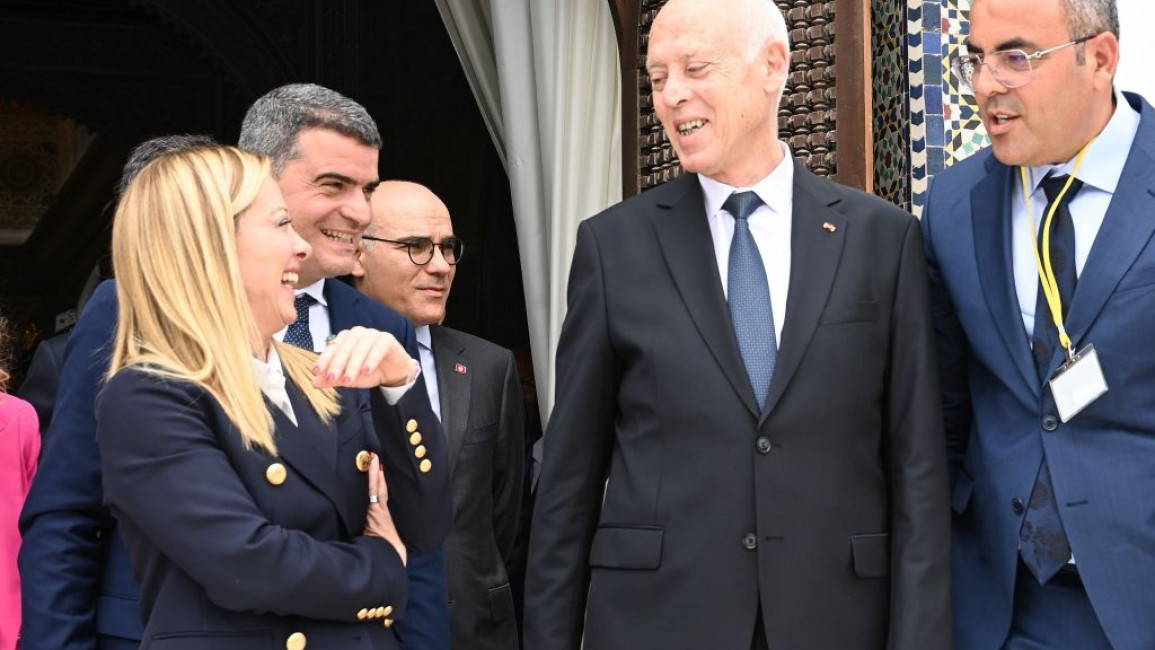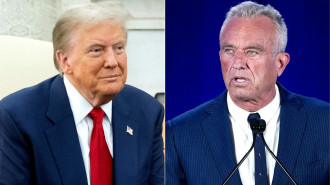'Bankrolling dictators': MEPs claim EU aid to Tunisia went directly to President Saied
Senior members of the European Parliament have accused the European Commission of funnelling funds to Tunisian President Kais Saied through a US$162 million migration deal, which allegedly ended up directly in the president's pockets.
"It seems that we are bankrolling dictators across the region. And that is not the Europe that we want to see," added French MEP Mounir Satouri, a member of the parliamentary foreign affairs committee, during a press conference on Wednesday.
On 4 March, the EU promised Tunisia a €150 million (US$162 million) budgetary support package. This is part of a broader pact signed last year between Tunis and the European bloc aimed at financial stability and curbing a surge in migration and people smuggling.
🚨🇪🇺🇹🇳 Ce matin, j’ai tenu 1 conférence de presse au PE avec mes collègues 🇪🇺 et @EuroMedRights sur l'aide financière à la 🇹🇳
— Mounir Satouri 🌍 (@MounirSatouri) March 13, 2024
👉Le respect des droits humains ne doit jamais céder face aux intérêts 💰
👉L'🇪🇺n'est pas 1 banque pour les dictateurs #Tunisie https://t.co/QTuJBgoK0C pic.twitter.com/lMopCeCbJm
At a press conference in Strasbourg, MEP Satouri claimed Wednesday that the €150m was supposed to have been invested directly in an EU-backed project but had instead been "transferred to the president directly."
Meanwhile, the Danish MEP Karen Melchior, coordinator of the justice committee, said parliamentarians' concerns about the Tunisia deal were "continually ignored" and that commissioners refused to answer their questions or take their concerns seriously.
"To sign an agreement with President Saied, who is continuing to suppress opposition and democracy in Tunisia – this is not the way the EU should be acting. This is not the way that Team Europe should be doing our foreign policy," said Melchior.
Since the deal, Tunisia's treatment of migrants has arguably worsened, with authorities deporting hundreds of sub-Saharan migrants to the desert borders and banning a European delegation from entry to investigate the migration crisis.
In October, a dispute broke out between Brussels and Tunis, which had returned 60 million euros of aid to the EU, in an unprecedented move for a partner country.
However, ties between the bloc and the North African state seem to have been restored after this month's pay of the EU aid package.
Tunis has yet to address the MEPs' accusations.
A similar deal in Egypt
The MEP's' anger towards the European Commission is mainly fueled by recent reports predicting a similar deal with Egypt.
The Greek migration minister, Dimitris Kairidis, confirmed late on Wednesday that a joint declaration between the EU and Egypt had been agreed and would be formally unveiled during Ursula Von Der Leyen's, President of the European Commission, visit to Cairo this weekend.
The agreement sees Egypt receiving an aid package of €7.4bn (£6.3bn)"mostly in loan" in return for the country" and "committing to work harder on migration".
The MEPs are concerned that the EU is considering a series of "ad hoc" deals with other African countries without regard to democracy and freedoms in those countries.
In reaction, a spokesperson for the EU Commission said "that it is better to build partnerships to improve democracy and human rights than to break off relations and see the situation deteriorate".
The spokesperson added there were "specific mechanisms in place to discuss human rights with the countries in the region, including Egypt", according to the Guardian. "It would be an error, particularly if it [the Tunisia deal] is replicated with Egypt", said Sara Prestianni, the advocacy director for the NGO EuroMed Rights, during a press conference on Wednesday.







 Follow the Middle East's top stories in English at The New Arab on Google News
Follow the Middle East's top stories in English at The New Arab on Google News
![The new film casts Israeli actors to tell the story of Mary while leaving out Palestinians [Getty]](/sites/default/files/styles/image_330x185/public/2024-11/GettyImages-2172155541.jpg?h=199d8c1f&itok=wJWyXDEQ)
![Ben & Jerry's has taken Unilever to court for its alleged attempts to silence it [Getty]](/sites/default/files/styles/image_330x185/public/2024-11/GettyImages-2183900214.jpg?h=199d8c1f&itok=jEcYtQ64)
